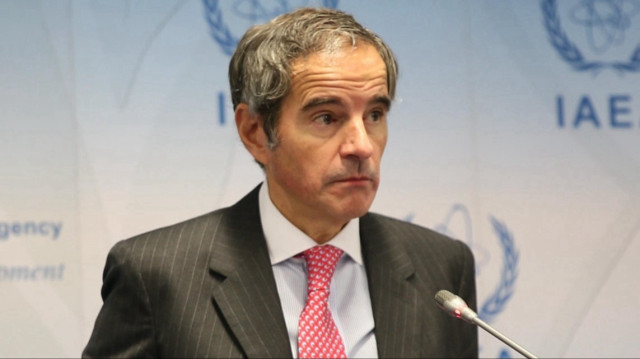
IAEA report alleges Iran's 60% uranium enrichment stockpile has surged by nearly half
Iran has strongly rejected the latest report by the International Atomic Energy Agency (IAEA) on its nuclear program, calling it "baseless" and "a pretext for political maneuvering" against the country.
In a joint statement issued Saturday, the Iranian Foreign Ministry and the Atomic Energy Organization of Iran described the findings of the UN nuclear watchdog's report as a “repetition of unfounded allegations.”
According to the IAEA report sent to member states, Iran's stockpile of uranium enriched up to 60% purity has increased by nearly 50%, reaching 408.6 kilograms, an amount, the agency notes, could be sufficient for nine nuclear weapons if enriched further.
In a separate confidential report circulated among member states and cited by multiple media outlets, the IAEA claimed that Iran had engaged in undeclared nuclear activities at three sites long under investigation, involving nuclear material that had not previously been disclosed to the UN agency.
These findings could prompt the US, UK, France, and Germany to push for the IAEA Board of Governors to formally declare Iran in non-compliance with its obligations under the Nuclear Non-Proliferation Treaty (NPT) for the first time in nearly two decades.
Both reports issued by the IAEA on Saturday expressed "serious concern" over the enrichment levels, noting that Iran remains the only non-nuclear-weapon state engaged in such high-grade enrichment.
The Iranian statement, however, noted that despite ongoing cooperation with the agency under the Comprehensive Safeguards Agreement, the reports focus on “marginal and extraneous issues beyond the IAEA's assigned mandate, which are irrelevant and outside the scope of the safeguards.”
"The Islamic Republic of Iran expresses regret over the publication of the report, which has been prepared under political pressure and motivations, and strongly objects to its contents," the statement said.
It further warned that Iran would take “appropriate measures to protect its legitimate rights and interests” should certain countries—implicitly referring to the US and Europeans—“misuse the current report during the IAEA Board of Governors meeting.”
“The consequences and responsibility for such actions will rest with those countries,” the statement added, a message analysts interpret as a possible indication that Iran may raise its enrichment levels beyond the current 60% purity threshold.
The release of the IAEA reports comes amid ongoing indirect nuclear talks between Iran and the US, mediated by Oman.
Five rounds of negotiations have been held so far in Muscat and Rome, but no significant progress has been reported, as enrichment remains a major sticking point between the two sides.
While the US has called for the dismantling of Iran's enrichment program, Tehran maintains that its nuclear activities are peaceful and that enrichment will continue.







